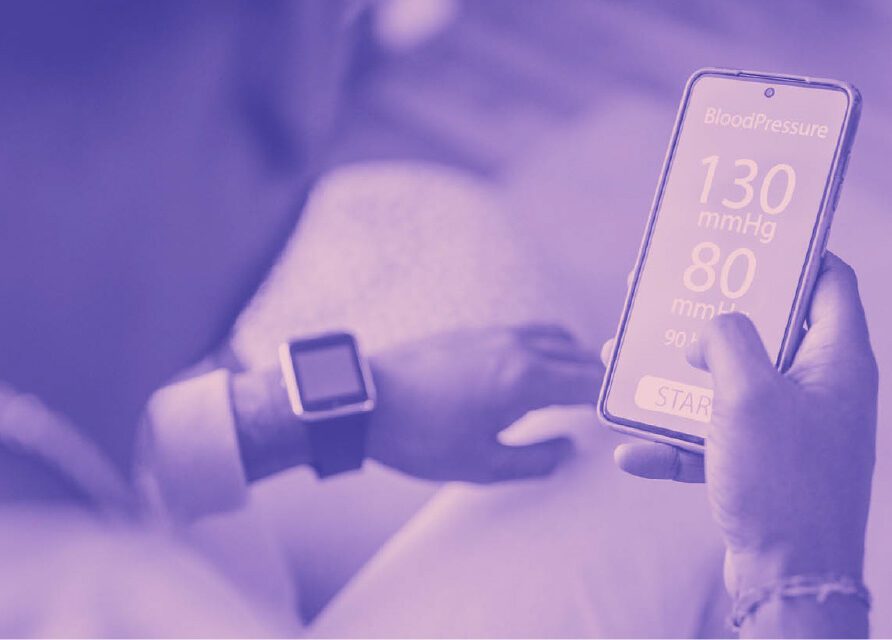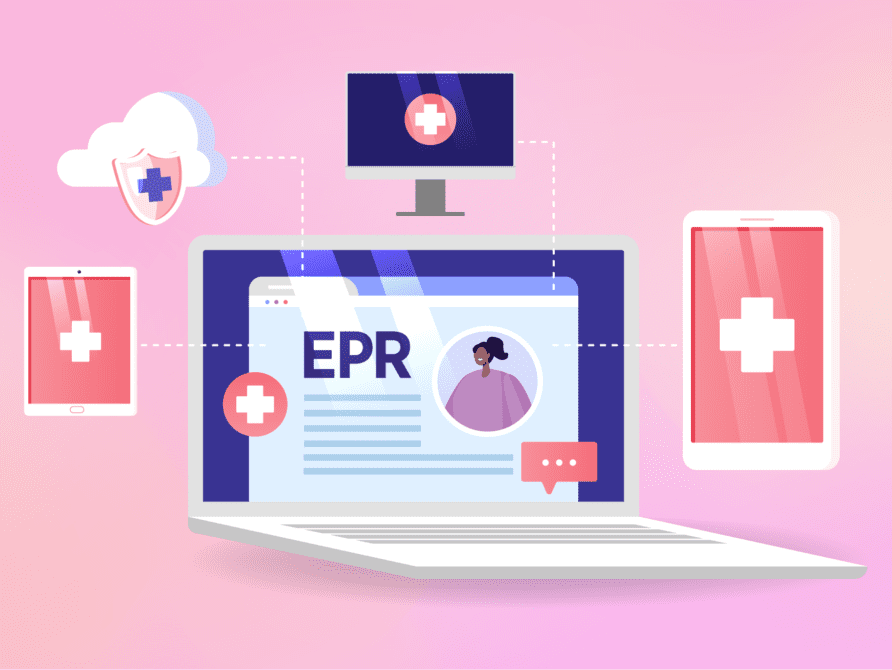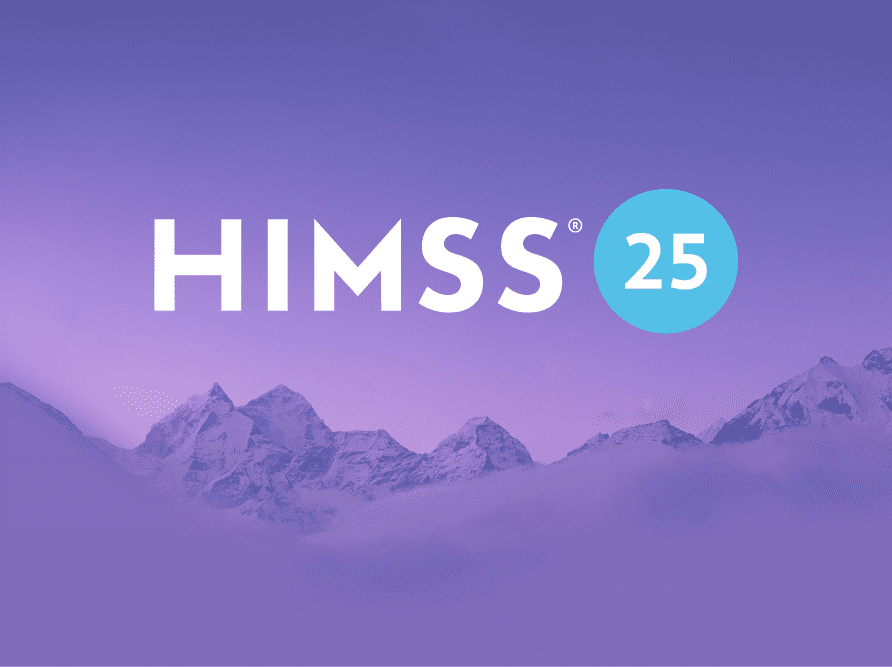INSIGHTS
The need for a new system
Prior to implementation, clinical teams spent a considerable amount of time completing unnecessarily admin-heavy processes. It would take maternity staff three hours to complete postnatal documentation and upwards of two hours to complete the necessary documentation ahead of C-sections, meaning theatre would almost always run behind schedule.
Often, clinicians were forced to leave the bedside to complete paper patient notes, meaning there could be long periods where expectant mothers were left alone during labour. What’s more, these paper records were often incomplete and incorrect, while the handwriting illegible, posing a risk to patient safety.
Recognising the limitations of paper records, the trust decided to extend Altera Digital Health’s Sunrise EPR to the maternity department. While other organisations have often opted to use a separate maternity system, Dudley chose to extend its EPR, as this enabled the maternity record to integrate into patients’ wider health record, providing a holistic view of their health. This is particularly important for families with other health conditions, such as chronic diseases, which are managed by other teams in the hospital. It also ensures that other trust-wide functions—such as requesting blood tests or radiology, prescribing drugs and performing baseline assessments—are already available in the maternity system. Sunrise also provided Dudley with the flexibility to configure and develop the system to suit them, drawing on experience gained from deploying the solution to the rest of the trust. Now, the team is able to design and implement changes quickly, which isn’t always possible with departmental solutions.
A more holistic view
Improved patient safety
Efficient prescribing
A comprehensive training programme
The trust developed a robust staff engagement and training programme to make sure the go-live went smoothly, and so staff felt empowered to make suggestions for how the system could improve as they grew comfortable using it. Samantha Willetts, Lead Digital Midwife at the trust, played an important role in the implementation of the EPR by mediating between the clinical and IT teams.
Samantha helped translate to the IT team what was needed in clinical practice so that the trust could build workflows and documentation in the EPR that would reflect users’ precise needs. As a digital midwife, Samantha was focused on patient safety and had insight into what functionalities were needed in a clinical setting. This enabled the translation of clinical needs into technical realities, with minimal disruption to patient care.
Ravi Kaur Sahota-Thandi, Digital Portfolio Director at the trust, said, “Having Sunrise has allowed us to adopt data-backed processes and drill down into the numbers so that we can offer support and training in areas where it’s needed most.”
Clinically led digital transformation
Taking a clinically driven approach to EPR design and deployment has enabled the trust to configure the system locally to suit its specific needs in maternity and support clinical decision-making. For example, the trust introduced an alert feature that would remind clinicians to conduct tasks, such as performing a venous thromboembolism (VTE) risk assessment for pregnant women. These timely reminders provided staff with better visibility of their patients’ needs, improving patient safety.
Samantha said, “The flexibility of the system made it possible for us to develop a system that was bespoke to us. The configuration has been clinically driven, so it has been able to meet our exact needs. With some suppliers, it can take up to three months to make any changes to the EPR, but we’ve been able to do it in as little as 24 hours. It has helped us to respond to issues and take a more agile approach, both on a local and national level.”
The trust has also been able to predict critical illness in pregnant women through the nationally recognised tool, Modified Early Obstetric Warning Score (MEOWS). Using Sunrise, staff can identify people at risk of deterioration by completing and recording observations electronically, automatically calculating the MEOWS score. This has enabled staff to recognise warning signs more quickly with embedded guidance a decision support prompts, making it possible to intervene and escalate appropriately, improving patient outcomes.
“With Sunrise, we’ve managed to build a flexible system that’s enabled us to respond to policy changes and address national issues in the media more quickly. The response time is now minutes instead of hours.”
Samantha Willetts
Digital Midwife at The Dudley Group NHS Foundation Trust
A more holistic view
Having a system that’s integrated with the trust’s EPR has meant that clinicians now have a more holistic view of patients’ health. Samantha Willets said, “Sunrise is helping us provide better care to new and expectant mothers, as we can see a full picture of their health, not just maternity data, enabling us to take a more preventative approach to healthcare. For example, we can see if a mother has attended A&E during her pregnancy, helping to safeguard her by identifying early warning signs for possible health conditions.”
Sunrise has been designed so that multiple people can review records simultaneously. This has meant that doctors and midwives have been able to document clinical records at the same time and in the same room as the mother, reducing the time taken to complete the task. As a result of these efficiencies, women are having their C-sections at the scheduled time, avoiding long waits and improving patient flow.
Samantha Willetts said, “Being a district hospital, it was essential for the EPR to allow us to build a rich maternity record for the people of Dudley. Our patients are members of our community, so it was important that the records we created reflect that. It’s given us the ability to share patient care records directly with GPs, meaning there’s greater continuity of care.”
Releasing time to care
The time taken to complete postnatal documentation has decreased from three hours to 40 minutes, or by 78%. The process, which was previously carried out in the handover office, is now completed in real time at the bedside, speeding up completion of documentation required prior to discharge. As a result, midwives can spend more time delivering direct patient care. The notes that staff make are also immediately available in Sunrise and can be viewed by any clinician who may need them, anywhere in the hospital, helping to streamline clinical workflows and enable care decisions to be made based on the patient’s full health record, as the maternity record is embedded in the EPR.
Ravi Kaur Sahota-Thandi said, “We wanted the system to be as usable as possible. Sunrise gives us visibility of our patients’ entire history. Our midwives say it’s given them the freedom to take the time to care for their patients, and as a result they feel like they’re delivering care rather than ticking boxes.”
Improved patient safety
With a comprehensive view of patients’ medical history immediately available on the system, patients don’t need to bring their notes to appointments. From a safety perspective, this means patients are not at risk if they forget to bring their notes. It also means that patient data is more accurate, as patients’ memories are not being relied on for information about their health.
With Sunrise, clinicians can view patients’ notes ahead of their consultations, meaning that clinicians can spend the consultation focusing on their patients’ care rather than asking questions to get up to speed with their current health status. This not only releases time to care but also means that clinicians can be assured they’re providing the best possible experience for their patients.
Samantha Willets said, “Historically, consultants would be required to review patients through a verbal handover and decide upon their treatment. However, with Sunrise, consultants can view the patient record remotely, for example, when deciding whether to go ahead with an emergency C-section. This has improved patient safety, as consultants can make more informed decisions about their patients’ care.”
Efficient prescriptions
Before Sunrise was deployed, staff would have to ring the manager on call if there were concerns about staffing and capacity. With Sunrise, however, the manager can log on, see an overview of all inpatients and their recent MEOWS score, and decide which patients can be safely moved or discharged. Clinicians at Dudley are also able to prescribe medication in as little as five minutes from any hospital department, avoiding having to return to the ward to add to a paper drug chart and enabling patients to be treated more quickly.
“As a Digital Midwife, I’ve been the bridge between the clinical and IT teams. I’m incredibly proud of the team at Dudley for building an EPR that’s in line with our trust policies and guidelines, suits how we operate, and supports the needs of all of our women in all eventualities.”
Samantha Willetts
Digital Midwife at The Dudley Group NHS Foundation Trust
Multi-disciplinary decision-making
Sunrise has enabled multidisciplinary teams (MDTs) to be more productive and make more informed decisions about patient care. Before Sunrise was deployed, there would be one set of notes per MDT and the chair of weekly staff meetings would read the notes aloud. However, with Sunrise, everyone can independently review the notes on their personal devices. This saves time and removes the bias from one person reading the notes aloud, enabling more thorough investigations.
Looking to the future
In April 2023, the Dudley Maternity department was inspected by the Care Quality Commission (CQC) and the overall rating for maternity increased from “Requires Improvement” to “Good.” The trust is now looking forward to continuing its digital journey and increasing the functionality of its EPR. Given the high configurability of Sunrise, the trust intends to enhance the existing system so that it can continue to meet the bespoke needs of the trust and its patients.
Having already gone live with emergency department (ED) and nursing documentation, Dudley is now looking to go live in the paediatrics and outpatient departments, continuing to develop as an advanced digital trust.
About the Client:
The Dudley Group NHS Foundation Trust
The Dudley Group NHS Foundation Trust provides hospital and adult community services to approximately 450,000 patients across three main sites in the heart of the Black Country: Russell’s Hall Hospital and Guest Outpatient Centre in Dudley, and Corbett Outpatient Centre in Stourbridge. The trust has been an Altera Digital Health client since 2006. Extending its partnership, the trust recently implemented Altera’s Sunrise electronic patient record (EPR) in its maternity department. This makes Dudley, which delivers 4,700 babies per year, the first organisation in the UK to do so, going against more traditional approaches of implementing a separate maternity system.
Related Insights
Article
The challenge of disparate systems in healthcare, and a promising solution
Dr. Constantin Jabarin, CCIO
Client Story
How The Dudley Group NHS Foundation Trust took an alternative approach to achieving digital maturity in its maternity services
The Dudley Group NHS Foundation Trust
Article
Virtual wards: Why EPRs matter
Dr Anna Bayes
Client Story
Psychology service digitised and integrated into trust-wide EPR at Liverpool Heart and Chest Hospital
Liverpool Heart and Chest Hospital
Article
Article
Client Story
Phoenix Children’s Hospital extends its reach of care with Altera Digital Health
Phoenix Children's Hospital
Article
Article












